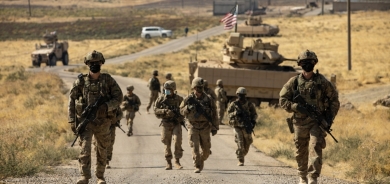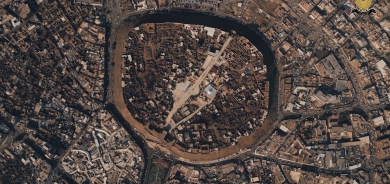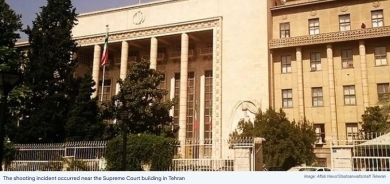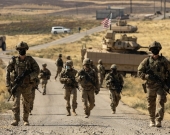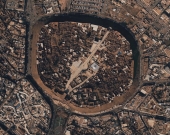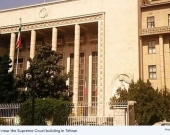Syria 'to complete chemical weapon shipments by March'

Deputy Foreign Minister Gennady Gatilov told the RIA Novosti news agency that the authorities in Damascus were planning "a large shipment" this month.
Last week, the US said Syria had given up only a fraction of its stockpile.
Moscow also confirmed on Tuesday that the Syrian government would attend the next round of peace talks in Geneva.
Deputy Foreign Minister Mikhail Bogdanov said he had "no doubt" representatives of President Bashar al-Assad would take part in negotiations with the opposition.
He spoke to reporters before a meeting between Russian Foreign Minister Sergei Lavrov and Ahmed Jarba, the head of the main Syrian opposition alliance, the National Coalition.
The first round of talks in Geneva ended after 10 days on Friday, without significant progress on key progress or a firm commitment from Damascus to return to the negotiating table.
Mr Jarba says the opposition will attend the next round, scheduled to begin on 10 February, but he wants Mr Lavrov to pressure the government to agree to the implementation of the Geneva Communique, which calls for the formation of a transitional administration.
"We told the Russian leaders that we are open to any solutions that ensure Syria's future - a future that is free of Assad and his war criminals," Mr Jarba said.
Deadlines missed
Russia and the US have led the international efforts to secure a political solution to the three-year conflict in Syria and to rid the country of its chemical weapons.
Despite denying that its forces were responsible for a poison gas attack outside Damascus in August that killed hundreds of people, the Syrian government subsequently agreed to the removal or destruction of its chemical stockpile by 30 June.
However, US and British officials last week expressed concern over the Syrian authorities' failure to meet a series of deadlines for the shipment abroad of its most toxic chemical agents and key precursor chemicals.
So far, only around 30 tonnes out of 1,300 - 4% of the "priority one" chemicals and roughly the same percentage of "priority two" chemicals - have been removed. The removal of priority one chemicals was due for completion by 31 December, while the deadline for the shipment of priority two material is Wednesday.
On Tuesday, French Foreign Minister Lauren Fabius told Europe 1 radio: "Bashar al-Assad's government must respect the commitments that it has made."
But Mr Gatilov urged other counties not to "dramatise the situation".
"Literally yesterday the Syrians announced that they have planned the removal of a large shipment of chemical weapons in February,'' he told RIA Novosti. "They are ready to complete this process by 1 March".
The Syrian government has attributed the delays to security concerns and logistical issues.
The Organisation for the Prohibition of Chemical Weapons (OPCW) has urged it to "accelerate" the removal process, but said the deadlines it set in the autumn are soft target dates and that it remains confident that the ultimate deadline of 30 June is still "completely realistic".
Barrel bombs
On the ground in Syria on Tuesday, government forces stepped up their offensive in the second city of Aleppo, with helicopters dropping barrel bombs on several rebel-held districts.
At least five people, including children, were killed when one of the explosive-filled cylinders hit a mosque being used as a school in Masaken Hanano, activists said.
Thirty people were killed across Aleppo in similar raids on Monday, the UK-based Syrian Observatory for Human Rights reported.
"In recent days the flight of civilians has intensified and the regime has made some small gains," Rami Abdul Rahman, head of the Syrian Observatory, told Reuters news agency.
"The main aid to their advance has been the rebel infighting," he added, referring to the clashes between jihadists from the Islamic State in Iraq and the Levant (ISIS) and fighters from both Western-backed and Islamist groups that have left hundreds dead in recent weeks.
1. The Syrian authorities are responsible for packing and safely transporting the chemical weapons from 12 sites across the country to the port of Latakia. Russia has supplied large-capacity and armoured lorries, while the US has sent container drums and GPS locators.
2. Russia is providing security for loading operations at Latakia, for which the US has supplied loading, transportation and decontamination equipment. China has sent 10 ambulances and surveillance cameras, and Finland an emergency response team in case of accidents.
3. Denmark and Norway are providing cargo ships and military escorts to take the chemicals to the container port of Gioia Tauro in Italy. Russia and China are also providing naval escorts and the first consignment of 16 tonnes left Latakia on 7 January.
4. In Italy, the "most critical" chemical agents will be loaded onto the US Maritime Administration cargo ship, MV Cape Ray, to be destroyed by hydrolysis in international waters. Less-toxic chemicals will be shipped by Norwegian and Danish vessels for disposal at commercial facilities.
BBC


